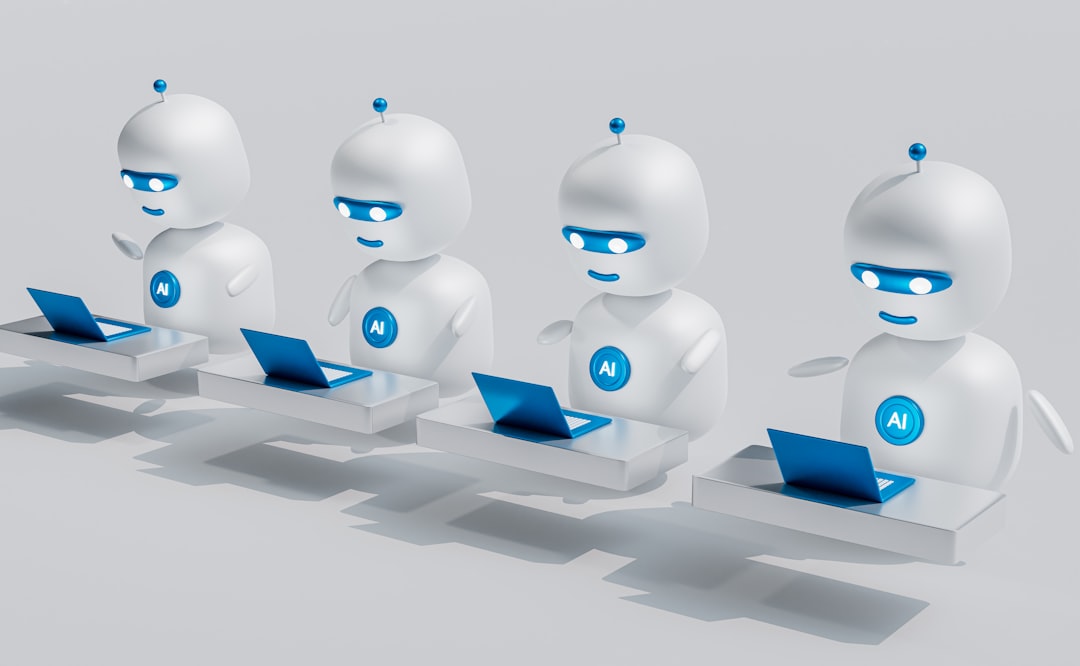Artificial intelligence (AI) has revolutionized the world of customer service, with intelligent chatbots taking center stage. These AI-powered conversational agents are transforming the way businesses interact with their customers, making operations more efficient and enhancing the overall customer experience. In this article, we will explore how AI is powering chatbots to learn, the impact it has on customer service, and what the future holds for this technology.
Enhancing Efficiency and Learning Capabilities
Businesses across various industries are leveraging AI-powered chatbots to streamline their operations and improve efficiency. These intelligent bots can handle a multitude of customer inquiries simultaneously, significantly reducing wait times and improving response rates. By automating routine tasks and frequently asked questions, chatbots free up human agents to focus on more complex and critical customer issues.
What sets these chatbots apart is their ability to learn and improve over time. Powered by AI algorithms, chatbots analyze vast amounts of data, including customer interactions, to understand language patterns, preferences, and sentiment. As they interact with more customers, these chatbots become smarter, providing more accurate and personalized responses.
For example, banking institutions like Bank of America have implemented AI chatbots on their websites and mobile apps. These chatbots learn from customer interactions to provide tailored financial advice, assist with transactions, and answer common queries. This learning capability not only improves efficiency but also enhances the customer experience by delivering personalized recommendations based on individual financial needs.
Speed, Convenience, and Customer Satisfaction
One of the key benefits of AI-powered chatbots is their ability to provide instant assistance, ensuring speedy resolution of customer queries. Customers no longer have to wait on hold or navigate through complex IVR systems; they can get immediate support from chatbots available 24/7. This speed and convenience significantly improve customer satisfaction, as customers feel valued and understood.
Furthermore, chatbots enable businesses to better understand their customers and personalize interactions. By analyzing customer data, including purchase history, browsing behavior, and preferences, chatbots can provide tailored recommendations and targeted offers. This level of personalization strengthens the bond between businesses and their customers, leading to increased loyalty and engagement.
For instance, e-commerce giant Amazon leverages AI-powered chatbots to make personalized product recommendations based on customers' browsing and purchase history. These chatbots analyze vast amounts of data in real-time to suggest relevant products, enhancing the shopping experience and increasing customer satisfaction.
Improved Response and Resolution Times
AI-powered chatbots have revolutionized response and resolution times in customer service. Traditional customer support channels often suffer from long wait times and delays, leaving customers frustrated. Chatbots, with their instant response capabilities, eliminate these bottlenecks, providing timely assistance to customers.
Moreover, by leveraging AI algorithms, chatbots can quickly analyze and understand customer inquiries, leading to faster problem resolution. They can provide accurate information and solutions without the need for human intervention. This not only saves time but also reduces the chances of errors or miscommunication.
A prime example of this is the airline industry. Airlines such as KLM and Delta have implemented AI chatbots that handle customer inquiries related to flight bookings, cancellations, and rescheduling. These chatbots can quickly access relevant flight information and provide instant updates to customers, saving them valuable time and reducing frustration during travel disruptions.
The Future: New Functionalities and Applications
The future of AI chatbots holds exciting possibilities for new functionalities and applications. Natural Language Processing (NLP) advancements will enable chatbots to understand and respond to human language more accurately, making conversations feel increasingly natural. This will further enhance the user experience and improve the effectiveness of chatbot interactions.
Additionally, integrating chatbots with emerging technologies like voice recognition and augmented reality can unlock new capabilities. Voice-enabled chatbots will enable customers to interact with businesses using voice commands, making the experience even more convenient and hands-free. Augmented reality integration can allow chatbots to provide visual assistance, helping customers troubleshoot technical issues or virtually try out products.
Furthermore, AI chatbots will continue to leverage big data analytics and predictive modeling to anticipate customer needs proactively. They will be able to analyze customer behavior in real-time and offer personalized recommendations or solutions before customers even realize they need them. This level of proactive assistance will enhance customer satisfaction and drive business growth.
In conclusion, AI-powered chatbots are transforming the world of customer service by enhancing efficiency, providing personalized interactions, and improving response times. Businesses across industries are leveraging this technology to better understand their customers, offer tailored recommendations, and ensure faster problem resolution. As AI continues to advance, chatbots will evolve with new functionalities and applications, further revolutionizing the customer service landscape.
SOURCES:
Bank of America's AI Chatbots - Bank of America
Amazon's Personalized Product Recommendations - MIT Sloan Management Review
KLM and Delta AI Chatbots - VentureBeat
Natural Language Processing Advances - [TechTarget]
